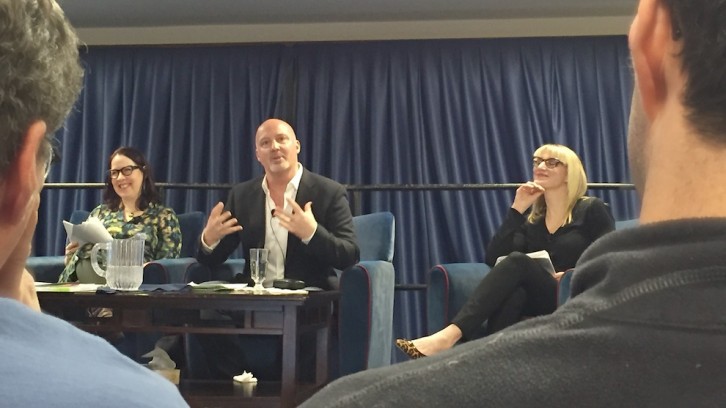Health
Marijuana can affect brain development in teens: medical experts
Addictions research centre wants to dispel pot myths as feds seek to legalize

caption

caption
Panelists discuss common myths about marijuana. They want adolescents to know that the substance is addictive and can have harmful effects on health.With the legalization of marijuana high on the new federal government’s list of priorities, a panel at the World Trade and Convention Centre in Halifax told the audience that scientific research suggests risks exist for youths who use marijuana regularly, but more research is needed.
The Canadian Centre on Substance Abuse organized the panel discussion, which aimed to expose the addictive nature of the drug and the impacts it has on the health of adolescents.
The CCSA is a charity that aims to reduce the harm of drug and alcohol abuse in Canadian society through research.
“We have reached a critical threshold of knowledge and information on the effects of cannabis in people,” said centre president Dr. Franco Vaccarino. “Now we have a really good sense of the behavioural effects, the cognitive effects and we understand the neuroscience of it.”
The centre released a report last June that summarized its findings on the perceptions and science behind marijuana use among young people.
The report states that one in six adolescents who use marijuana will become dependent on it. It also outlines the adverse effects of regular marijuana use, such as behavioural impairments, irregular development of the brain and psychotic symptoms.
Prime Minister Justin Trudeau recently tasked former Toronto police chief Bill Blair with handling the government’s pot-legalization process.
The panel at the convention centre featured four prominent experts in the field of psychiatry. They have backgrounds in medicine, neuroscience and youth development and spoke to the many aspects of marijuana research.

caption
Panelists took questions and encouraged the audience to discuss medical marijuana, drug use among youths and related topics.Panelists held a question period and encouraged the audience to engage in a discussion about marijuana use in youths. They discussed the risks of prescribing medical marijuana.
The panelists hoped the meeting would provide a factual basis for future conversations about marijuana use and its legalization.
Vaccarino moderated the panel and said that background knowledge is important before acting on legalization.
“As a first step, what’s important is to make sure whatever policies we land on, and whatever regulations we land on, that they’re informed by science and factual evidence,” Vaccarino said.
He says the conversation around legalizing marijuana stems from offenders spending time in prison for marijuana offences.
“For many of us, that just doesn’t feel right,” he said. “That’s why we’re having these conversations.”
“If we implement these policies, there’s going to be side effects. We have to make sure that as a society, the communities are prepared for these side effects.”
Legalization
Dr. Selene Etches, an adolescent psychiatrist with the IWK, says the advantages of legalizing marijuana may exceed the risks.
“The advantage to legalizing, of course, is that policies and reports like this will start coming out and more research will start happening,” said Etches. “So I’ll have more advantages as an adolescent psychiatrist to treat these youths. Right now my options are limited because the research isn’t there.”
According to the centre’s report, nearly a quarter of Canadians aged 15-24 admitted to using some form of marijuana in 2013.
The panelists discussed the impact that daily marijuana use can have on the developing brain. They said, for young people, it can lead to potential problems with addiction and mental health.
“When you have discussions about legalizing a substance, youths start becoming the forefront of conversations, which to my mind is fantastic,” said Etches. “Right now, [marijuana use] happens all the time and no research occurs and no money is funnelled into programs — we don’t talk about it.”
Ottawa still has to hash out the specifics for legalizing marijuana and Vaccarino says it’s important to consider all of the facts.
“The devil’s in the details,” he said.
